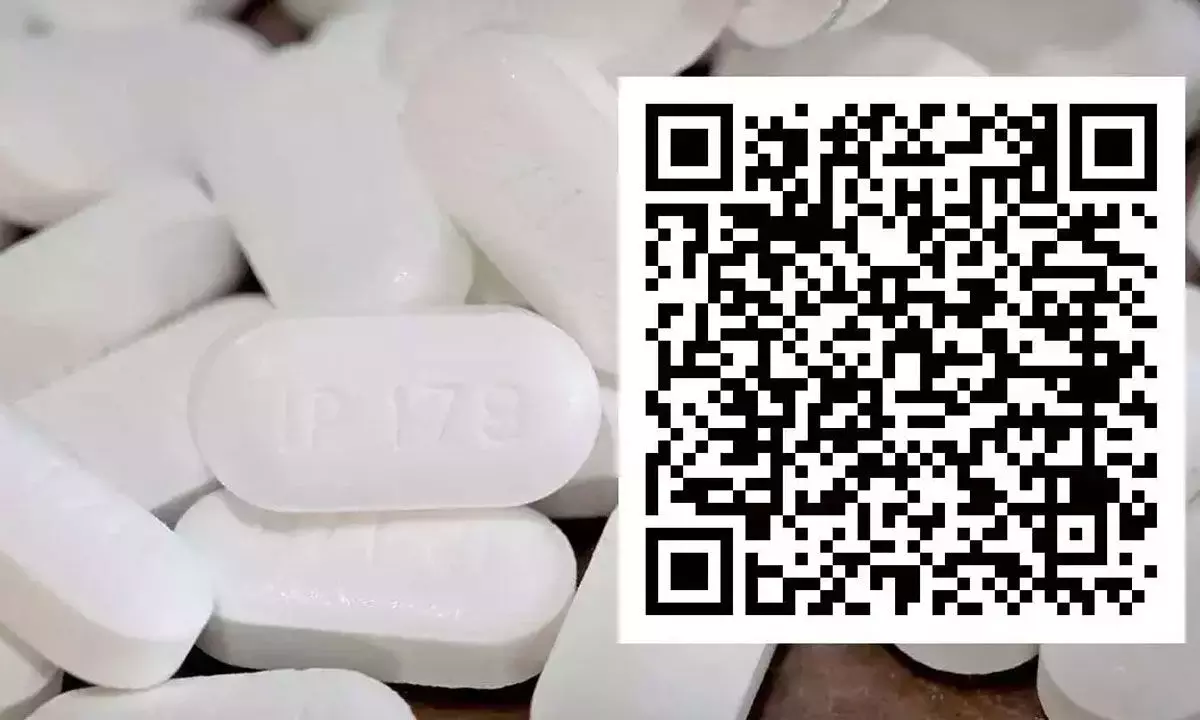QR code: An avoidable expense on pharma MSMEs
The pharma MSMEs are already reeling under steep rise in prices of imported Chinese APIs; Besides, QR code is hardly effective in addressing spurious or adulterated API menace
image for illustrative purpose

The MSME pharmaceutical units in the country have recently urged the Union Health Ministry to roll back the mandatory Quick Response (QR) code on the label of all active pharmaceutical ingredients (APIs) manufactured or imported in India, at each level of packaging from January 2023 to enable tracking and tracing of the pharmaceutical ingredients. On August 18, 2022, the small and medium pharma manufacturers wrote to Dr Mansukh Mandaviya, Union Minister of Health and Family Welfare and Chemicals and Fertilizers requesting him to withdraw the notification GSR 20(E) dated January 18, 2022, mandating QR code on label of APIs or suitably amend it for imported APIs only. They appealed to the Minister to suitably amend it to make QR code mandatory for imported APIs only to prevent the menace of spurious or substandard APIs in the country. The small and medium pharma entrepreneurs argue that APIs are sold B2B (business-to-business) and not directly to the consumers.
Therefore, in B2B if any spurious or substandard APIs are received by formulation units then the same is rejected and returned to the API manufacturer/supplier. There is no way the APIs can directly be consumed by consumers or patients. Therefore, QR coding on APIs does not serve any purpose on curtailing spurious medicines to patients or consumers. They further argue that APIs are sold in HDPE bags or drums, affixing barcodes on the same can prove futile because during transportation or rainy season.
There are chances that it may get spoiled or torn as these are bulk packing and are thrown in the lorry unlike finished formulations which are packed in cartons and are handled with care. The MSMEs suggested to the government that the QR code should be implemented on APIs imported from other countries to curb the menace of spurious, substandard and smuggled APIs into the country. These are many cases where unscrupulous traders are bringing in expired or substandard APIs from other countries, mislabeling them and selling them throughout India.
On January 18, 2022, the Union Health Ministry came out with a notification - GSR 20 (E) amending Labeling Rules of Drugs and Cosmetics Rules, 1945. The ministry inserted a sub-rule (5) after the existing sub-rule (4) under the Rule 96 of the Drugs and Cosmetics Rules, 1945 through the amendment. The amendment Rule is scheduled to come into force from January 1, 2023. As per the new sub-rule, every active pharmaceutical ingredient (bulk drug) manufactured or imported in India shall bear QR code on its label at each level of packaging that store-data or information readable with software application to facilitate tracking and tracing.
The stored data or information shall include the minimum particulars including unique product identification code, name of the API, brand name (if any), name and address of the manufacturer, batch number, batch size, date of manufacturing, date of expiry or retesting, serial shipping container code, manufacturing licence number or import licence number and special storage conditions required (if any).
Supply of spurious and substandard medicines in the pharmaceutical market has been a major issue plaguing the country for a long time now. Though the Indian government has periodically been taking several measures to contain this menace, if not completely eradicate it, it seems to have failed in its attempts as there are reports of spurious and substandard medicines making its entry in the pharmaceutical supply chain in the country. Since APIs of good quality is core to the manufacturing of effective and safe medicines, the implementation of QR code on API packs for tracing its origin and movement from manufacturers to formulators is a laudable decision.
The QR code will help track and trace medicines during the entire supply chain and ensure its authenticity. The Health Ministry's initiative in this regard is a welcome step, but the MSME pharma companies have voiced concern that mandatory requirement of QR code on the pack of APIs manufactured in the country will further add to the cost of bulk drug manufacturers. It is true that the MSMEs neither have the manpower nor funds to create additional infrastructure for QR coding in their premises.
So, mandating of QR code is an unnecessary burden on MSMEs which have a miniscule share of exports. The pharma MSMEs are already reeling under steep rise in prices of imported Chinese APIs. Besides, QR code is hardly effective in addressing spurious or adulterated API menace. Hence it would be a futile exercise to put in place QR code to ensure API quality.
It is under this background, the pharma MSMEs have recently urged the government to roll back its decision on mandating QR code on the label of all APIs from January next year. As the D-day is approaching fast, the government should lend an ear to the concerns of the MSME pharma manufacturers in the country.
(The author is freelance journalist with varied experience in different fields)

